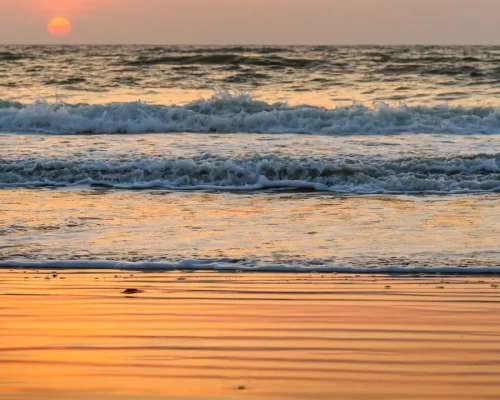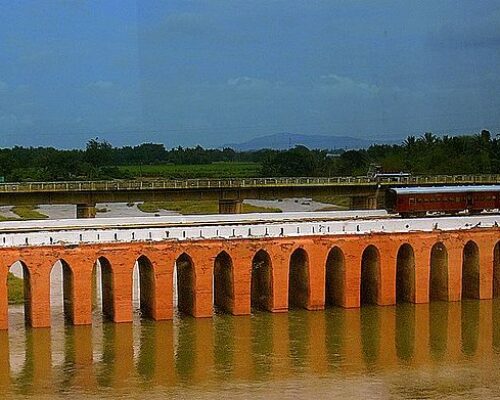It’s all about making better locations for humans to live and good spots for people to visit when it comes to responsible tourism. Operators, hoteliers, governments, local residents, and tourists must all take responsibility and steps to make cities more sustainable.
For any attraction that maintains wildlife in captivity, preservation and sustainability are critical parts of responsible tourism, and this is also true for tour operators who offer adventures of seeing wildlife inside the wild.
A Community-First Strategy
At Resort in Kabini, they work in tandem with the people to ensure that they are prioritised. Rather than competing with them, they work to improve their skills and goods, putting the local economy first. They have also trained and integrated them into their team at all of their locations.
96 percent of the workforce is made up entirely of locals, including members of indigenous tribes. They are trained and supported when they join staff at a resort in Kabini and progress up the ladder to senior positions. To help the local economy, vegetables, milk, chicken, and fish are sourced locally from local agricultural and fishing groups. They’re urged to eat organically, and aim to provide them with certification soon for work at a resort in Kabini for better career opportunities
Every day, village trips are organised for every guest to interact with the people.
Students at a resort in Kabini adopted local schools participate in anti-plastic campaigns on a regular basis. This would not only help the local community, but also look after the employees. They have helped them open bank accounts, build houses and toilets, purchase motorcycles, and ensure that their children are enrolled in decent schools. Putting a step forward or a better economy at a resort in kabini.
Putting the Environment First
From the Central of resort in Kabini, Environmental protection is the Earth’s cause of responsible tourism. All of their decisions are made with the goal of allowing the environment to thrive by reducing damaging behaviours and consciously engaging in activities that promote the environment’s survival. It’s All About Responsibilities!
For those beckoned by the gods of travel, tourism gives both new sights and insights. It appeals to the lingering nomad in all of us, urging us to go to new places, meet new people, and experience new things. Travel may broaden our thoughts and touch our hearts if our intentions and experiences match
Over the previous century, the locomotive, vehicle, and jet plane have made long and short distance travel possible like never before. Every year, new destinations and experiences are revealed to the world’s casual and committed travellers. Time has shrunk, and the creation of the global village has secured connectedness as well as connections.

These projects are costly to start up and maintain. It is generally cheaper to do things the old way and not worry about the environment, but people do it nonetheless, mostly willingly.
- Avoiding plastic and drinking water
- Utilization of solar and wind power
- Appropriate guest room placement
- Roofs made of coconut leaves
- Grease trap oil composting as a treatment for kitchen oil
- Waste Disposal
- Farming that is organic
- Biogas Unit.
- Use of the free cycle
- Traditional Tribal Dances
While knowledge and technology have made travel more convenient, the planet that we call home has had to pay a price for all of our movement. Tourism is now widely acknowledged as a significant contributor to environmental pollution. Pollution, trash, and disruption of local societies and economies are (sadly) some of its natural results, as are joy, inspiration, enrichment, and discovery.
This understanding prompted the creation of the Responsible Tourism Covenant in 2002. It was a sign of the times, created out of a growing desire for environmental protection and human wellbeing to coexist. The resort in Kabini understands the importance of responsible tourism. It is, after all, an expansion of the Society of Ramapuram’s vision and philosophy, which is broad, current, and inclusive. The dynasty has not seen land or even the people who use it as a means to a goal, despite the fact that their wealth began with plantation nearly a century ago.
The hotel industry, which is now a developing arm of the family’s economic activities, is guided by this ethos of responsible management. The main concepts of responsible tourism may be seen and experienced in the day-to-day operations of resorts in Kabini and Coorg, which resort in Kabini strive to provide more than just luxurious vacations.
They seek to provide enriching and enlightening experiences for their guests – experiences that highlight the fragility of the ecosystems of which we are all a part, as well as the steps that may be taken mindfully to reduce the impact on a beleaguered ecosystem. Moreover On a bright Sunday morning, go fishing and bring back your catch, learn to harvest a crop from a kind farmer, live in the hamlet, and enjoy excellent local cuisine. Soak me up and wish you’d never had to come back! Kabani has created B&Bs in eight communities with the help of farmers, fishermen, and women entrepreneurs, involving 450 people. Kabani encourages guests and resort in kabini hosts to participate in cultural programmes in order to foster genuine cultural exchange.
Kabini Community Tourism and Services has been advocating for a model that benefits local communities while reducing tourism’s negative impact since 2005. The non-profit organisation established in Kerala promotes community tourism activities to help farmers earn additional income and minimise farmer suicides.



